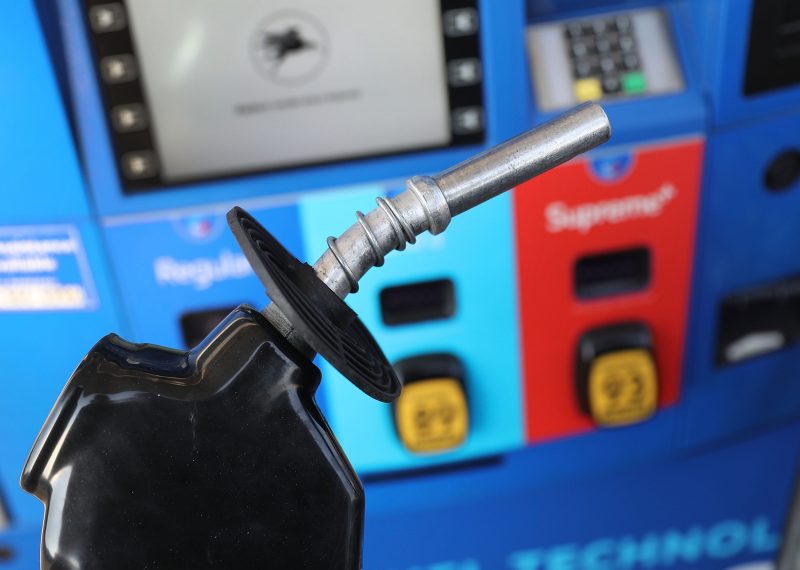Cheap energy sends US inflation to 19-month low
US gasoline prices fell 5.5% in January, dragging the inflation measure to a halt for the third consecutive month (JOE RAEDLE)
Washington (AFP) – Falling gasoline prices put the brakes on US consumer inflation in January which hit the slowest pace in 19 months, the government reported Wednesday, easing already mild pressures on consumers’ wallets.
Energy prices saw their biggest drop in almost three years.
While costs for shelter, clothing, medical care and home furnishings all rose, the sluggish overall price gains will remove pressure on the Federal Reserve to resume raising interest rates — likely a relief to investors.
The Consumer Price Index, which tracks costs to households for goods and services, was flat in for the third month in a row, according to the Labor Department, undershooting economists’ forecasts.
Compared to January of last year, CPI gained 1.6 percent, slowing for the fourth month in a row and the smallest increase since June 2017.
Energy was the primary drag on prices, posting the largest month-to-month decrease since February 2016. Gasoline prices fell 5.5 percent.
But food, including soft drinks, rose as carbonated sodas saw their biggest annual price gains in eight years.
When the volatile food and fuel categories were stripped out, the “core” inflation index was stronger but still relatively tame.
Core CPI rose 0.2 percent for January — the fifth straight month at that level, which matched analyst expectations.
Compared to the same month of 2018, the core index rose 2.2 percent, the same change as in November and December.
In a separate data release, the Labor Department also reported that inflation-adjusted wage gains in January slowed, rising 0.2 percent, half the increase recorded in December.
Disclaimer: This story is published from a syndicated feed. Siliconeer does not assume any liability for the above story. Validity of the above story is for 7 Days from original date of publishing. Content copyright AFP.


